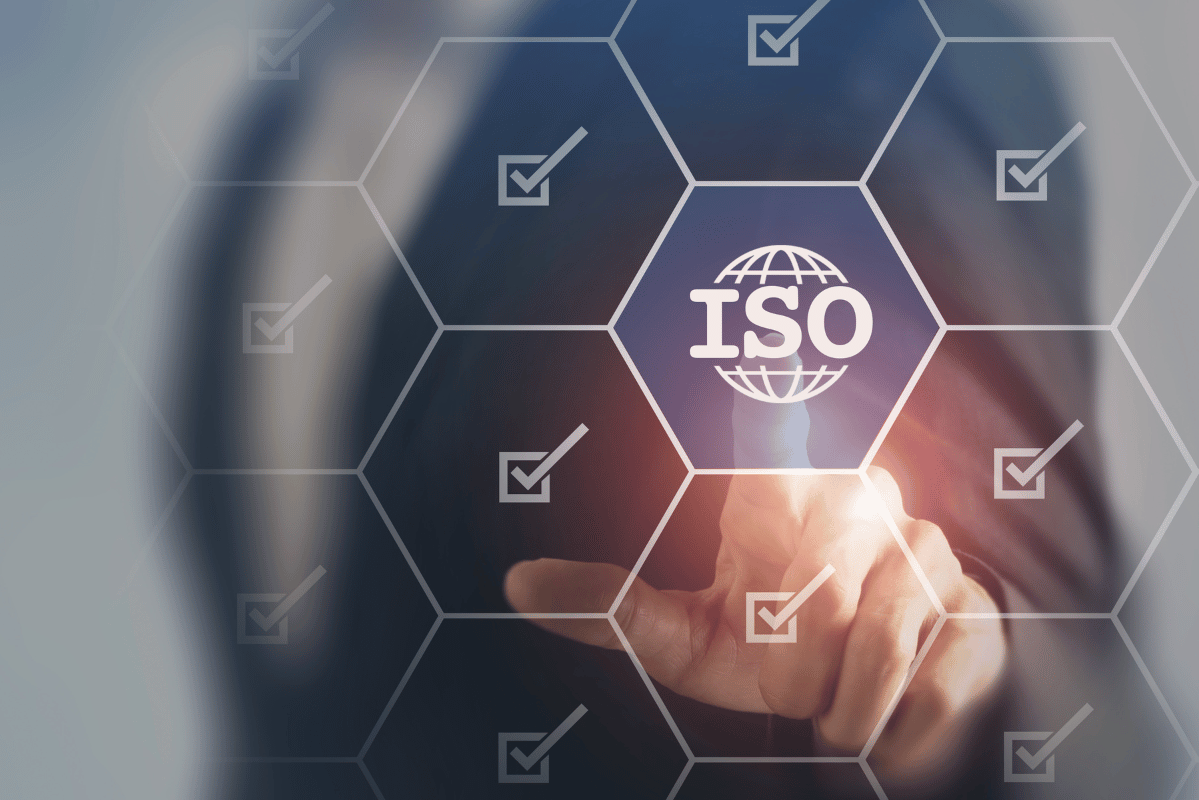ISO Certification Market Growth by 2034
Globalization has brought markets closer together, creating new opportunities for companies to expand internationally. At the same time, it has increased the complexity of managing quality, safety, and compliance across borders. In this insight, we explore the global ISO certification market and its projected growth to 2034, highlighting regional trends, emerging technologies, and the impact of customer expectations.
Key Takeaways
- The ISO certification market is projected to grow from US$ 16.14 billion (2024) to US$ 66.25 billion (2034) at a CAGR of 15.2%.
- Asia-Pacific leads the growth, driven by rapid industrialization and global supply chain integration.
- The “Other” certification segment, covering industry-specific standards, is the largest and fastest-growing category.
- AI and digital tools are transforming certification processes, from audit automation to real-time compliance tracking.
- ISO standards play a key role in ensuring quality, building trust, and enabling global trade.
Understanding ISO Certification: Definition & Importance
ISO certifications are internationally recognized standards issued by the International Organization for Standardization (ISO). They define best practices across quality, safety, environmental protection, and information security. ISO certifications help companies ensure that their products, services, and processes meet globally accepted norms — making them essential in today’s connected and compliance-driven business world.
Global Market Outlook: Trends and Projections
According to market research, the global ISO certification market was valued at US$ 16.14 billion in 2024. Despite periodic declines due to cyclical recertifications such as ISO 9001:2015 (Quality Management Systems) or ISO 14001:2015 (Environmental Management Systems), the long-term trend remains upward. By 2034, the market is expected to more than quadruple to US$ 66.25 billion. This remarkable expansion reflects a strong CAGR of 15.2%, underlining the growing strategic importance of internationally recognized certifications in a globalized and compliance-driven business environment.
The “Other” Segment Leads Growth
While core certifications like ISO 9001 and ISO 14001 (further information in the environmental compliance section) remain popular, the largest growth is seen in the “Other” category, which includes industry- or function-specific standards (e.g., ISO 45001 for occupational health & safety or ISO 27001 for information security). The growing relevance of this segment reflects a clear shift in the market: organizations are no longer satisfied with one-size-fits-all approaches. Instead, they are seeking targeted certifications that align closely with their industry context, strategic objectives, and stakeholder expectations.
As a result, the certification landscape is becoming increasingly diversified and tailored, enabling companies to demonstrate excellence and accountability in highly specific domains. The surge in demand for these niche standards underscores a broader transformation—toward more integrated, risk-aware, and future-oriented management systems that go far beyond traditional quality and environmental compliance.
Regional Insights: Where the Growth Happens
Asia-Pacific: A Rising Power in Certification
The Asia-Pacific region is rapidly becoming the global hotspot for ISO certifications. Drivers include:
- Accelerated industrial growth
- Export-oriented economies
- Increasing demand for compliance in global supply chains
Countries such as China, India, and Southeast Asian nations are investing heavily in the formalization and standardization of business processes to compete more effectively on the international stage. This pursuit of operational excellence, paired with regulatory evolution and a growing emphasis on international credibility, positions Asia-Pacific as an influential growth engine in the global certification market for the coming decade.
North America: A Mature and Regulated Market
North America remains a well-established ISO market, benefiting from:
- Corporate governance frameworks
- Data privacy and security regulations
- Demand for quality and sustainability standards
U.S. and Canadian companies are leveraging certifications not only to meet regulatory requirements but also to build trust with stakeholders and maintain competitive advantage in both domestic and global markets. By 2034, North America is projected to account for 23.4% of the global market, underscoring its sustained relevance in a maturing yet innovation-driven environment.
Europe: A Traditional Stronghold
Europe continues to lead in environmental and safety standards, building on decades of structured regulatory frameworks and a cultural emphasis on sustainability and compliance. It has long been regarded as a frontrunner in ISO certification, especially in areas related to environmental protection, occupational health and safety, and corporate social responsibility. The continent’s leadership is rooted in a deeply embedded culture of sustainability, a robust network of regulatory frameworks, and a proactive approach to long-term risk management. From automotive to energy, European industries have institutionalized standards as a central part of business strategy, not merely as compliance instruments. This strong regulatory backbone, combined with growing ESG pressures and consumer expectations, ensures that Europe remains a core market—both in volume and in thought leadership—when it comes to high-quality, sustainable certification practices.
Customer Demands & AI: Driving the Future of Certification
Customers now expect more than just basic compliance — they demand quality, data privacy, traceability, and sustainability. This shift is compelling organizations to move beyond reactive compliance and toward proactive, value-driven certification strategies. This leads to continuous improvement of certification processes, driving innovation.
The Role of AI and Digital Tools
At the same time, AI is opening new frontiers for how certification processes are managed and optimized. AI is already transforming how organizations approach certification:
- Cloud-based audit tracking systems
- AI-driven compliance platforms
- Automated gap analysis and monitoring tools
- Digital certification management dashboards
The result is a new paradigm—one where certifications are not just end goals, but dynamic tools that drive continuous improvement, innovation, and strategic differentiation. These advancements will help organizations scale their compliance efforts while reducing costs and errors.
Conclusion: Why ISO Certifications Will Only Become More Relevant
In a world shaped by global trade, regulation, and risk, ISO certifications provide a universal language for trust, transparency, and operational excellence. They are no longer a competitive advantage reserved for a few—but a baseline expectation across most industries. From enhancing reputation to ensuring market access, they’re becoming non-negotiable in most industries.
As a strategy consulting firm with deep expertise in compliance, quality, and digital transformation, EFS Consulting helps organizations across industries implement ISO standards efficiently and strategically. Contact the EFS compliance experts today to learn how we can support your ISO and compliance journey!
FAQs
What is the future of ISO standards?
ISO standards will continue to evolve alongside emerging technologies, regulatory demands, and sustainability goals—making them even more critical for international business.
How big is the ISO certification market?
The global ISO certification market is projected to grow from US$ 16.14 billion (2024) to US$ 66.25 billion by 2034, with a CAGR of 15.2%.
Which industries benefit most from ISO certifications?
Manufacturing, automotive, logistics, IT, healthcare, and energy sectors benefit most, especially in areas like quality management, information security, and sustainability compliance.



